Daniel Duma
A Systematic Review of Natural Language Processing Applied to Radiology Reports
Feb 18, 2021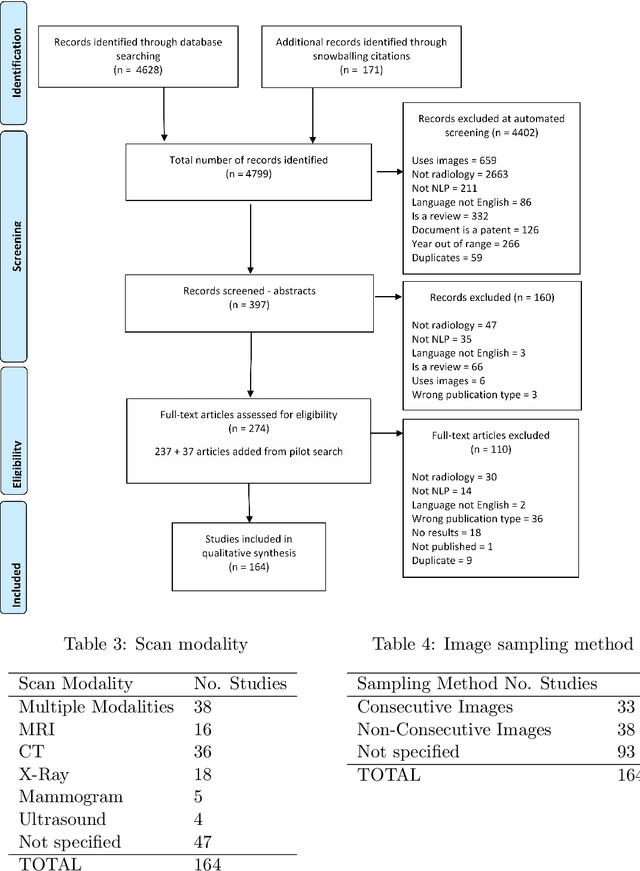
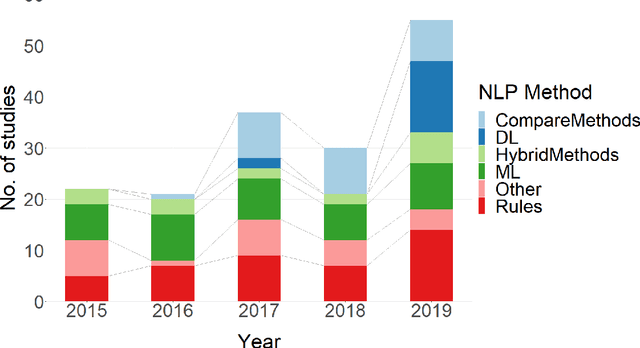
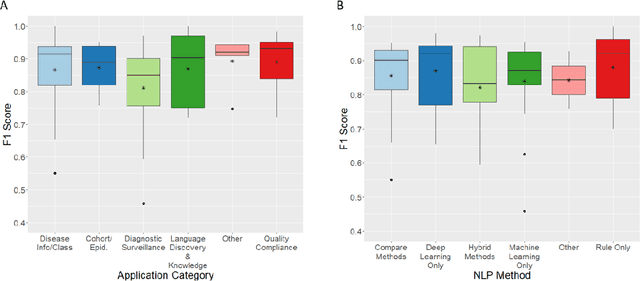
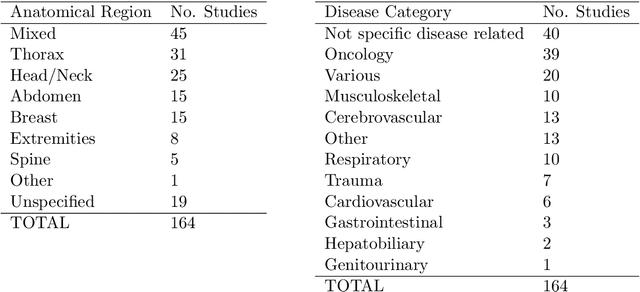
Abstract:NLP has a significant role in advancing healthcare and has been found to be key in extracting structured information from radiology reports. Understanding recent developments in NLP application to radiology is of significance but recent reviews on this are limited. This study systematically assesses recent literature in NLP applied to radiology reports. Our automated literature search yields 4,799 results using automated filtering, metadata enriching steps and citation search combined with manual review. Our analysis is based on 21 variables including radiology characteristics, NLP methodology, performance, study, and clinical application characteristics. We present a comprehensive analysis of the 164 publications retrieved with each categorised into one of 6 clinical application categories. Deep learning use increases but conventional machine learning approaches are still prevalent. Deep learning remains challenged when data is scarce and there is little evidence of adoption into clinical practice. Despite 17% of studies reporting greater than 0.85 F1 scores, it is hard to comparatively evaluate these approaches given that most of them use different datasets. Only 14 studies made their data and 15 their code available with 10 externally validating results. Automated understanding of clinical narratives of the radiology reports has the potential to enhance the healthcare process but reproducibility and explainability of models are important if the domain is to move applications into clinical use. More could be done to share code enabling validation of methods on different institutional data and to reduce heterogeneity in reporting of study properties allowing inter-study comparisons. Our results have significance for researchers providing a systematic synthesis of existing work to build on, identify gaps, opportunities for collaboration and avoid duplication.
Talking to myself: self-dialogues as data for conversational agents
Sep 19, 2018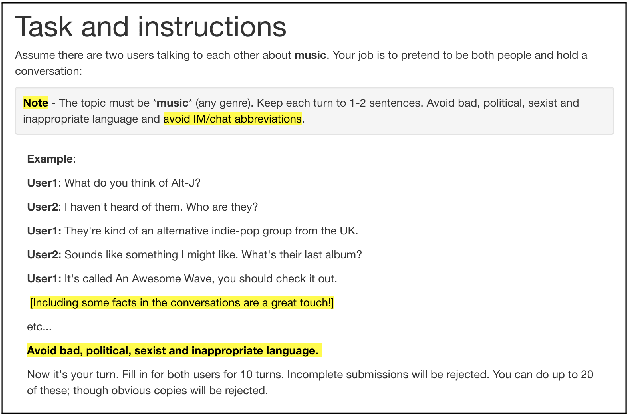
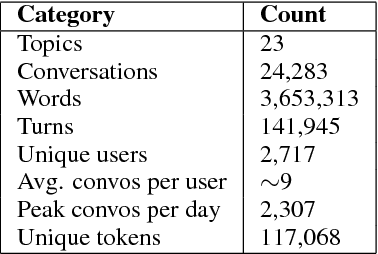
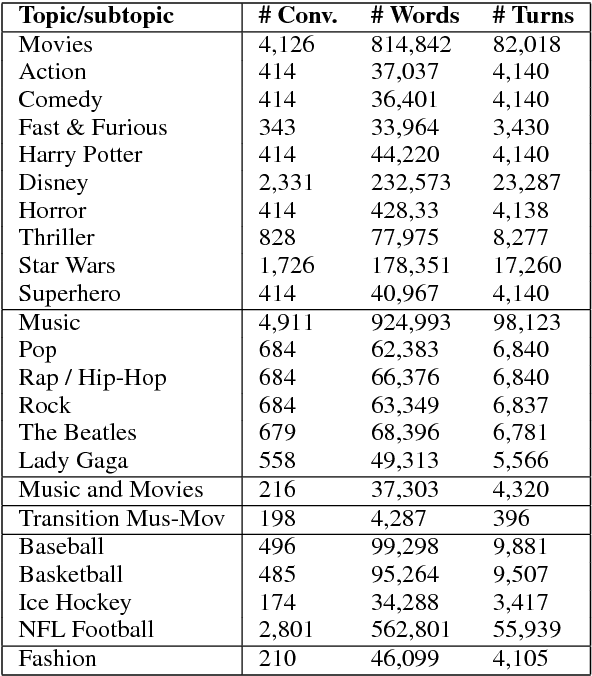
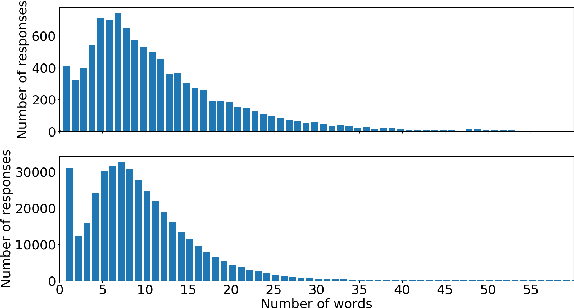
Abstract:Conversational agents are gaining popularity with the increasing ubiquity of smart devices. However, training agents in a data driven manner is challenging due to a lack of suitable corpora. This paper presents a novel method for gathering topical, unstructured conversational data in an efficient way: self-dialogues through crowd-sourcing. Alongside this paper, we include a corpus of 3.6 million words across 23 topics. We argue the utility of the corpus by comparing self-dialogues with standard two-party conversations as well as data from other corpora.
Edina: Building an Open Domain Socialbot with Self-dialogues
Sep 28, 2017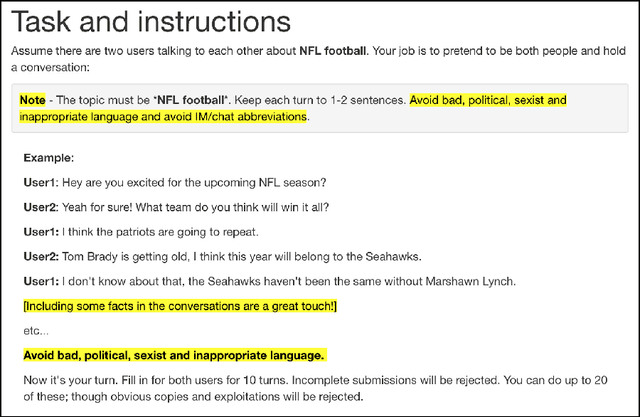
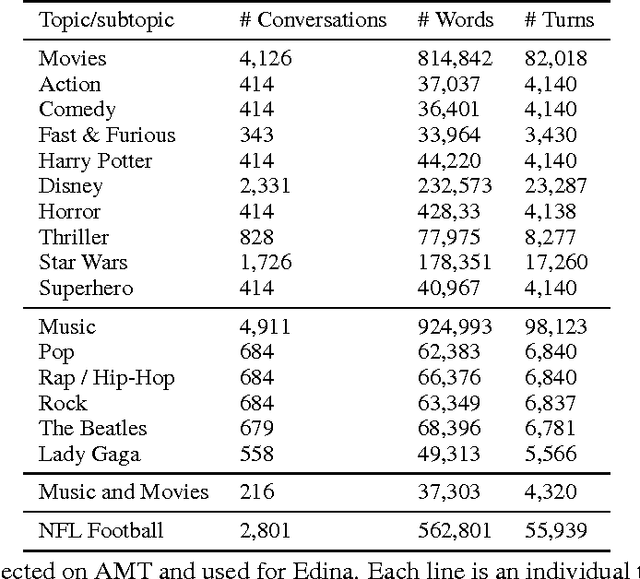
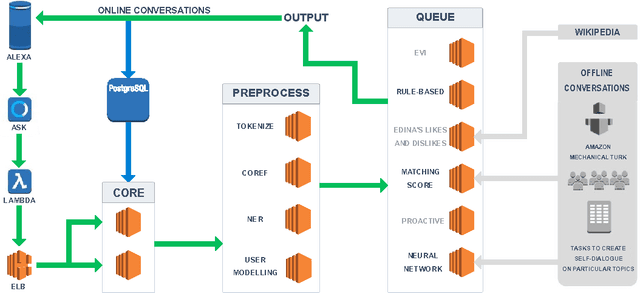

Abstract:We present Edina, the University of Edinburgh's social bot for the Amazon Alexa Prize competition. Edina is a conversational agent whose responses utilize data harvested from Amazon Mechanical Turk (AMT) through an innovative new technique we call self-dialogues. These are conversations in which a single AMT Worker plays both participants in a dialogue. Such dialogues are surprisingly natural, efficient to collect and reflective of relevant and/or trending topics. These self-dialogues provide training data for a generative neural network as well as a basis for soft rules used by a matching score component. Each match of a soft rule against a user utterance is associated with a confidence score which we show is strongly indicative of reply quality, allowing this component to self-censor and be effectively integrated with other components. Edina's full architecture features a rule-based system backing off to a matching score, backing off to a generative neural network. Our hybrid data-driven methodology thus addresses both coverage limitations of a strictly rule-based approach and the lack of guarantees of a strictly machine-learning approach.
 Add to Chrome
Add to Chrome Add to Firefox
Add to Firefox Add to Edge
Add to Edge